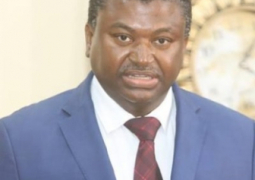
In delivering her judgment, the presiding judge dismissed the application of both counsel and declared “no order for costs to the parties in the case”.
The Centre for Legal Support (CLS) represented by counsel S.K Jobe and R. Savage filed an originating summons on 15 November 2021 and sought that section 33 of the District Tribunal Act, which restricts legal practitioners from appearing and/or acting for any party before a District Tribunal, is “inconsistent” with the provisions of section 24 (1) and (3) (d) and (e) of the1997 Constitution and to the extent of its inconsistency is unconstitutional, null and void.
The applicant (CLS) also declared that pursuant to the section 24 (1) and (3) (d) and (e) of the 1997 Constitution and section 30 (2) of the Legal Aid Act 2008 and international treaties and conventions that the Gambia is a signatory to, a person or party before any court or tribunal in The Gambia is entitled to defend him or herself or by a legal representative of his or her choice.
The applicant further filed in the originating summons that a legal practitioner issued with a Practicing Certificate by the General Legal Council is entitled “to practise” as a legal representative and to appear or act for any party before a District Tribunal.
Lastly, they ordered directing the respondent and or the Government of The Gambia to take immediate steps to repeal Section 33 of the District Tribunal Act for being “inconsistent” with the Constitution, other Acts of the National Assembly and the international human rights obligations.
Both counsel for the applicant and the respondent raised issues the presiding judge noted as relevant to the application before the court.
The presiding judge highlighted that the fact that the legislature being a branch of government has in its wisdom imposed a restriction to legal representation before the District Tribunals by virtue of Section 33 of the District Tribunal Act, which states: “A legal practitioner shall not appear or act for any party before a District Tribunal.”
Justice Wadda Cisse stated that courts should exercise restraint to attribute superior wisdom regarding matters entrusted to the legislature.
She further stated that there was “of course the urgent need” from the executive and the legislature to reform and amend the District Tribunal Act and certain other provisions in their laws to align them to the letter and spirit of the 1997 Constitution. “With all due respect, the current state of affairs is chaotic, and permitting legal practitioners to appear before the Tribunals will further compound the problems,” Justice Wadda-Cisse said.
The judge added that the District Tribunal Act “to a large extent operated to compromise the independence and integrity of the District Tribunals” in the discharge of their judicial functions, given the unfettered powers vested in the Governors and the Minister to supervise, regulate and interfere with the proceedings and even decisions of the Tribunals.
The presiding judge said the governors and minister are political appointees and therefore answerable to the executive arm of government. As political appointees, she added, their powers over the District Tribunals “undoubtedly undermine” the principle of separation of powers and rob the Tribunals of their judicial independence.





